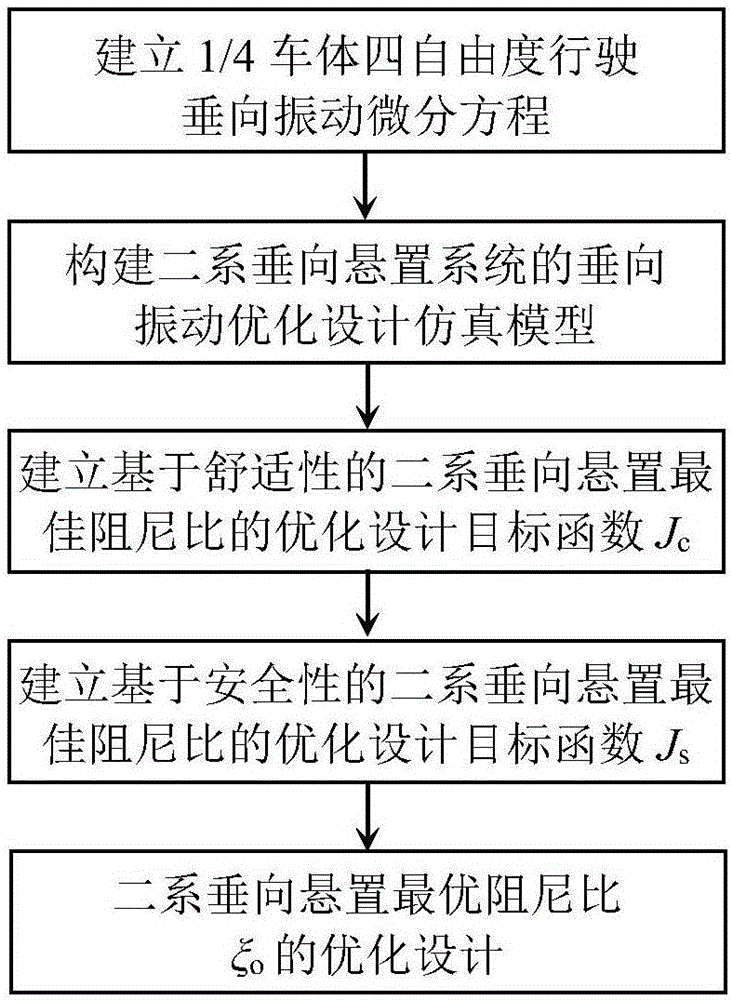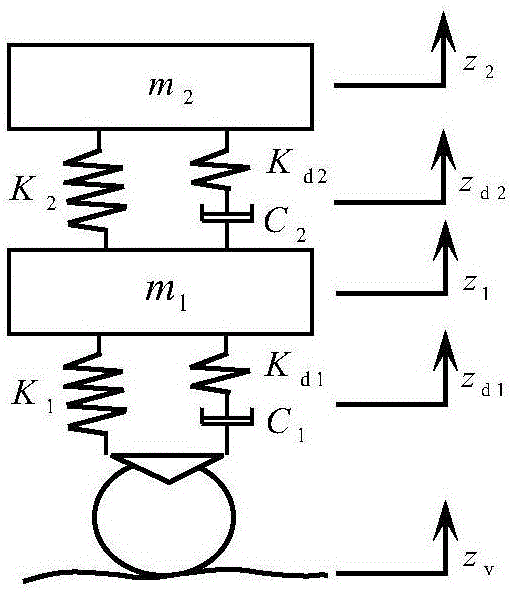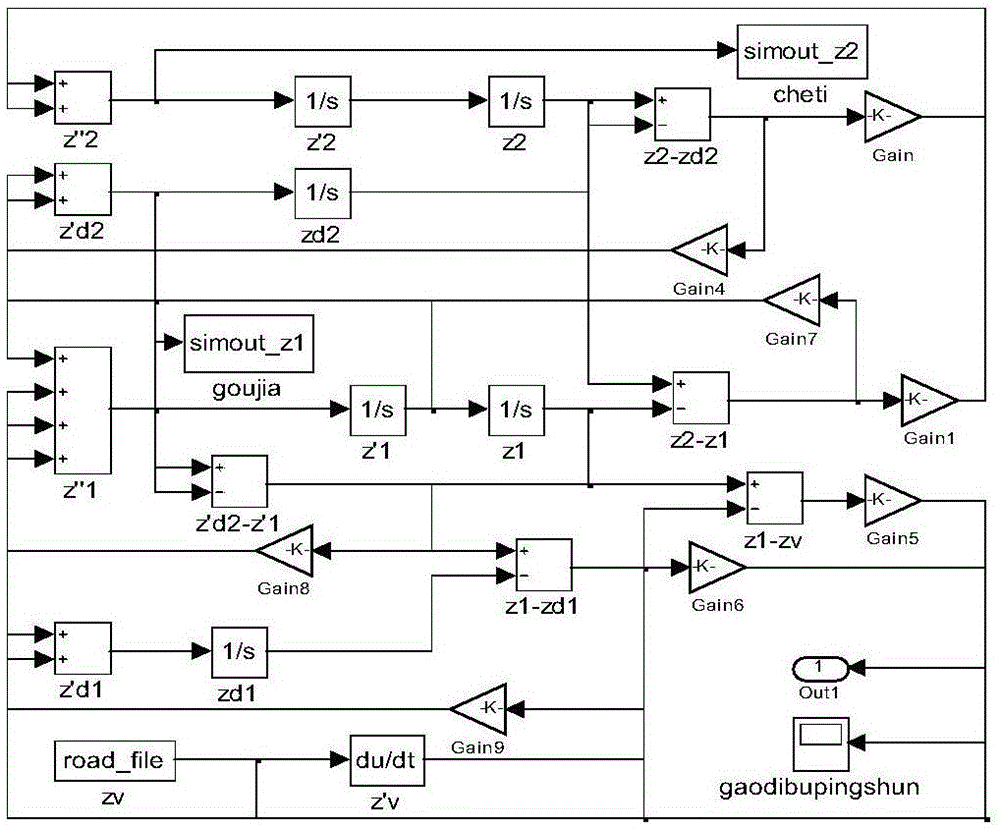Optimization design method for secondary vertical suspension optimal damping ratio of high-speed railway vehicle
An optimal damping ratio, secondary vertical technology, applied in computing, mechanical equipment, special data processing applications, etc., can solve problems such as the theoretical design method of the system, the difficulty of dynamic analysis and calculation, etc.
- Summary
- Abstract
- Description
- Claims
- Application Information
AI Technical Summary
Problems solved by technology
Method used
Image
Examples
Embodiment Construction
[0030] specific implementation plan
[0031] The present invention will be further described in detail through an embodiment below.
[0032] The full-load mass of a 1 / 4 single-section car body of a high-speed rail vehicle m 2 =14398kg, half of the mass of a single bogie frame m 1 =1379kg, the equivalent stiffness K of the primary vertical suspension 1 =2.74×10 6 N / m, equivalent damping C 1 =28.3kN.s / m; the stiffness K of the secondary vertical suspension 2 =5.68×10 5 N / m; the equivalent stiffness of the end connection of the primary vertical shock absorber K d1 =40×10 6 N / m, equivalent stiffness K of the end connection of the secondary vertical shock absorber d2 =20×10 6 N / m; the damping ratio of the secondary vertical suspension to be designed is ξ, where the damping coefficient of the secondary vertical shock absorber The vehicle speed v=300km / h required by the damping ratio design of the secondary vertical mount of the high-speed rail vehicle is designed for the o...
PUM
 Login to View More
Login to View More Abstract
Description
Claims
Application Information
 Login to View More
Login to View More - R&D Engineer
- R&D Manager
- IP Professional
- Industry Leading Data Capabilities
- Powerful AI technology
- Patent DNA Extraction
Browse by: Latest US Patents, China's latest patents, Technical Efficacy Thesaurus, Application Domain, Technology Topic, Popular Technical Reports.
© 2024 PatSnap. All rights reserved.Legal|Privacy policy|Modern Slavery Act Transparency Statement|Sitemap|About US| Contact US: help@patsnap.com










